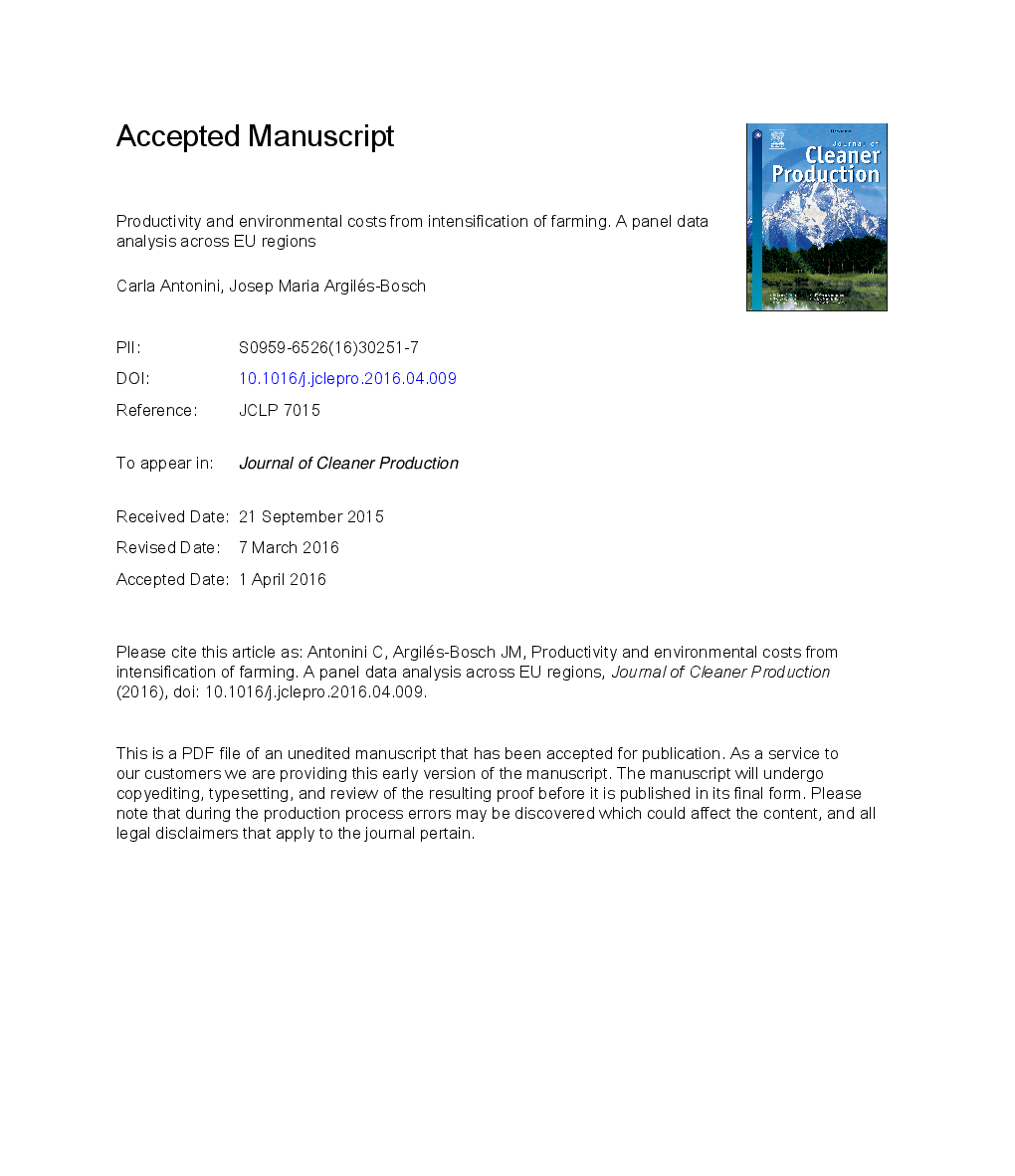ترجمه فارسی عنوان مقاله
بهره وری و هزینه های زیست محیطی از تشدید کشاورزی. تجزیه و تحلیل داده های پانل در مناطق اتحادیه اروپا
عنوان انگلیسی
Productivity and environmental costs from intensification of farming. A panel data analysis across EU regions
| کد مقاله | سال انتشار | تعداد صفحات مقاله انگلیسی |
|---|---|---|
| 98933 | 2017 | 22 صفحه PDF |
منبع

Publisher : Elsevier - Science Direct (الزویر - ساینس دایرکت)
Journal : Journal of Cleaner Production, Volume 140, Part 2, 1 January 2017, Pages 796-803
ترجمه کلمات کلیدی
انرژی، کشاورزی اروپا، کود، آفت کش ها، بهره وری، حسابداری پایدار،
کلمات کلیدی انگلیسی
Energy; European agriculture; Fertilisers; Pesticides; Productivity; Sustainability accounting;

